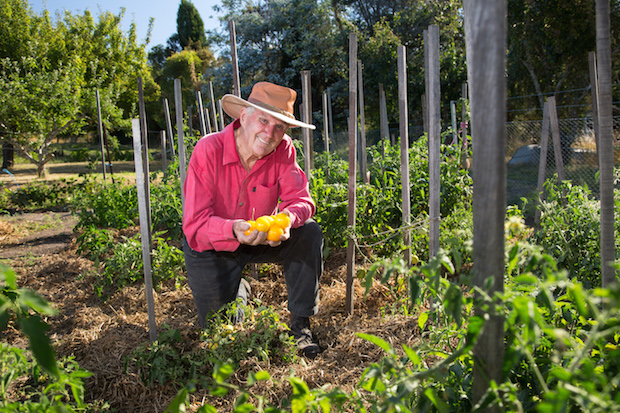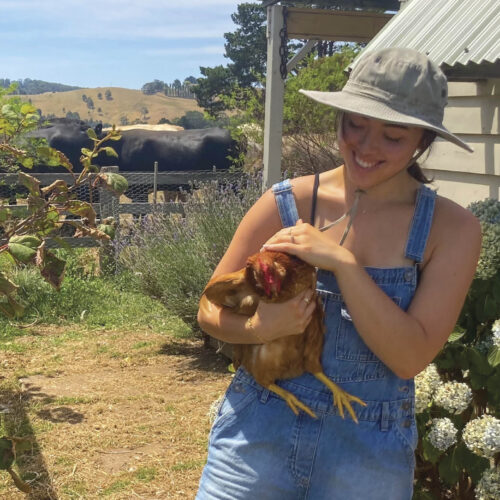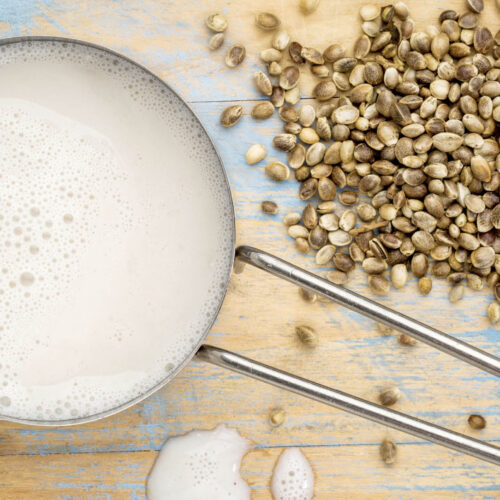A life-giving revolution
2018-02-07T13:00:01+11:00
In our 100th issue, Peter Cundall reflects on the organic growing movement and its role in countering the destructive effects of industrial agriculture.
It’s no accident that the first conservationists were those who initiated the organic growing movement almost a century ago. Although these early pioneers were clearly unaware of climate change or even directly involved in environmental protection, concerns about soil destruction and related health issues resulting from the use of synthetic, chemical fertilisers and dangerously toxic sprays put them among the very first active environmentalists.
They were also among the first to point out how uncontaminated, fertile soils are a primary source of good health because they contain a natural balance of living things. It is this organic balance that ensures the production of nutrient-rich fruit, vegetables and other foods.
Although primitive, organic food-growing methods were used over thousands of years, the living soil pioneers of the 1920s understood the need to use modern, scientific techniques as part of their work.
I grew up during the Great Depression in a district where most vegetables and fruit were organically grown in local backyards and allotments. The methods were unintentionally organic because chemical fertilisers and sprays were expensive, while natural fertilisers such as animal manures and compost made from recycled organic waste were widely available at no cost.
My childhood was a time when there was virtually no waste because everything was re-used. I was the little boy who dutifully followed horse-drawn milk carts and bakers’ vanscarrying a bucket and a hearth shovel. I finally discovered that if I stood in front of a waiting horse and rattled my bucket, it would immediately oblige and drop a steaming load, ready for immediate insertion into my compost heap.
Today the organic growing movement is worldwide, enabling certified, naturally grown, uncontaminated food to be available to everyone. In many parts of the world, many major food outlets now sell a wide range of certified, organically grown fruit, vegetables, grains, meat and other products.
Looming disaster
Yet despite the increasing popularity of organic gardening and farming, plus a relentless demand for more organically- grown food, a new disaster is looming. Over the past
40 years the world has lost 30 per cent of its fertile soil. This is because of degradation due to over-use of chemical fertilisers and over-cropping. Even worse, this destruction is occurring at a time when more food is needed to supply a rapidly increasing population.
Instead of respecting, protecting and nourishing the soil, huge, factory farms are trying to force from it more than it can give, requiring ever-increasing amounts of artificial and life-destroying stimulation. In all parts of the world right now, healthy, fertile soil is being converted into nothing more than a powdery, lifeless support for plants.
Tragically, the driving force behind this destruction is nothing more than greed – the great curse of the human race. It is the same force behind all wars, especially those aimed at gaining more access to oil, minerals, land and other resources.
In their pursuit of short-term profits, the transnational fossil-fuel corporations and their associated industries and supporters have been feeding the greatest threat to life on earth – climate change.
Greed is also behind powerful, transnational chemical corporations who finance genetically engineered food crops, many designed to absorb but remain unaffected by glyphosate and similar herbicides. The same modified foods are then marketed for human and animal consumption.
No wonder the powerful fossil-fuel manufacturers have managed over decades to deny the science on climate change just as the major chemical corporations fiercely oppose any attempts to label food containing genetically modified materials or that’s been sprayed with life- destroying herbicides and pesticides.
Peaceful resistance
This is why more and more people are turning to organic growing methods, either in their own backyards or community gardens. The greatest and most gentle, life-giving revolution in the history of the human race is now taking place and most of us are only half-aware of it. For the first time, on a huge scale, people all over the world are looking more closely at the food we are eating, demanding to know more about where and how it was grown.
Also, there is a strong movement of young people back to the land, taking up regenerative agriculture and market gardening, which is massively heartening.
Those becoming involved in community gardens are also discovering new, valuable and in many cases, unexpected relationships. While these dedicated, amateur food-growers are gaining new skills, exchanging produce, recipes and experiences, the real value of community gardens is the way barriers between different ethnic groups or those with disabilities can rapidly disappear.
Gardening power
This is the 100th issue of ABC Organic Gardener magazine. The reason why it has proved so successful over the years is because it has never lost the plot. The contents have steadfastly remained dedicated to growing, harvesting and preparing the most nutritious, health-giving food we can eat.
Today, most organic growers have become a conscious and vital part of the growing strength and influence of the worldwide environmental movement.
Is there a more powerful but peaceful resistance to the destructive influence of greed?






